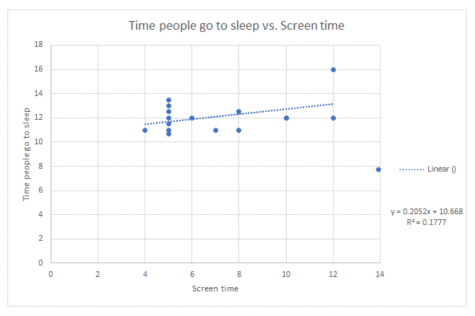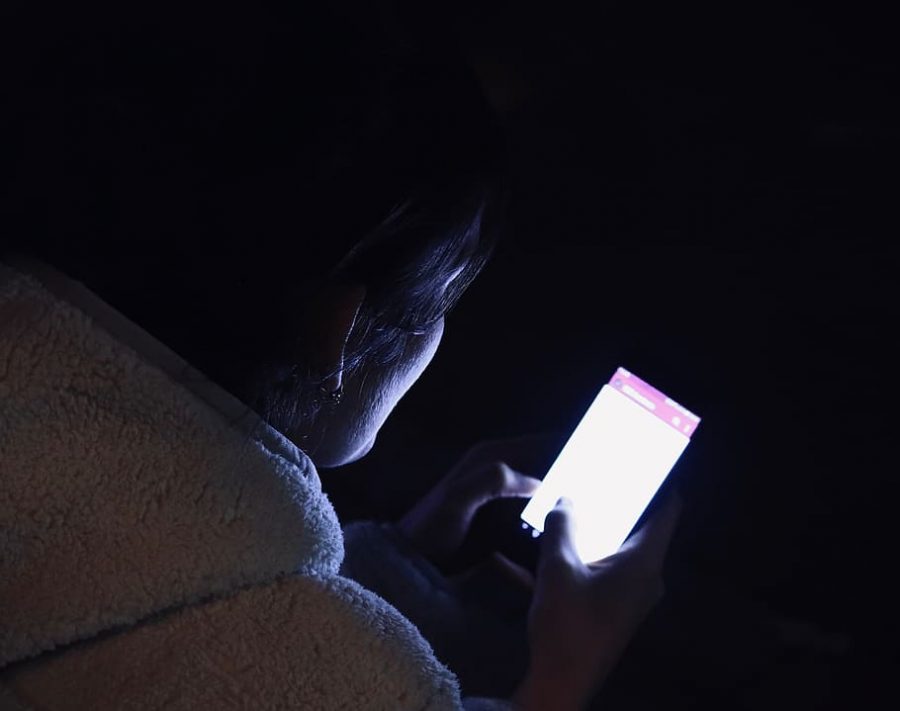How Screen Time Affects Sleep
December 3, 2020
Surveyors – THS Statistics Club
Data Analysts – Jun Jeon, Tomer Witleson and Jay Noh
Article Writers – Dina Shlufman, Sanford Whatley, and Johnny Coppolino
The lack of sleep greatly affects the immune system, irritability, and concentration. It decreases memory as well as the body’s ability to fight off infections. The long-term effects of sleep deprivation include increased susceptibility to Type 2 diabetes due to a rise in blood sugar, as well as high blood pressure and heart disease. Screen time has been increasing among students across the world due to the prevalence of online school. The ubiquity of social media is responsible for a large portion of the time students spend on their phones. Tenafly’s extremely cutthroat academic and social environment leaves students spending many hours staring at a screen, yet not as many hours with their eyes shut. Therefore, we decided to test whether screen time affects the number of hours students sleep.

The population we chose to study was the 2021 Senior class of THS. Doing a census of the population would require us to get a response from every senior in THS, which would be difficult, so we looked for ways to sample the population, opting to use cluster sampling and to survey the students of Mr. Sutera’s period 1 gym class. Most students (excluding those in peers) take Mr. Sutera’s physical education class, and it also has a similar distribution of CPB, CPA, and Honors students to that of the entire population of THS seniors, making it a fair sample of the population of the THS seniors. We sent an anonymous survey asking the class what time they usually go to bed, and how much they use their phone each day. Here is the graph that we produced from our data:
We received 16 responses out of the 29 students in the class. The average time people slept at was 12:12 AM and the average hours spent on their phones each day was 7.5 hours. The correlation coefficient of the data was 0.39. A perfect correlation value is a 1, so the value of .39 indicates a weak correlation with the THS seniors between time spent on phones and time at which they slept.
In conclusion, our results can only be applied to seniors in the high school, because we only sampled one cluster: a senior gym class. However, our results showed a weak correlation between the amount of screen time and the time at which people go to sleep. Therefore, you can keep using your cell phone, but make sure to get enough sleep every night!
If you enjoyed this article, make sure to check out the THS Statistics Club! Reach out to Jay Noh or Jun Jeon to suggest ideas for future studies. Click the Facebook Link to join our Facebook or join our Google Classroom using the code goameoj. Hope to see you at the next meeting!

















































































































































